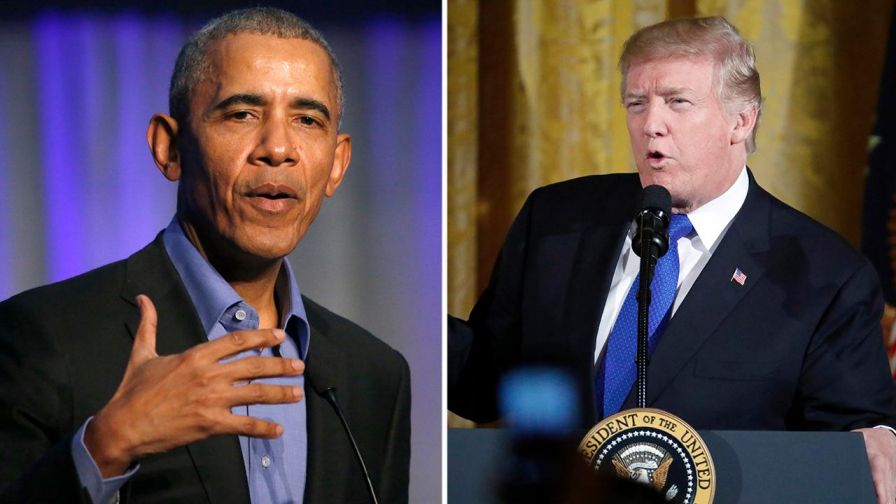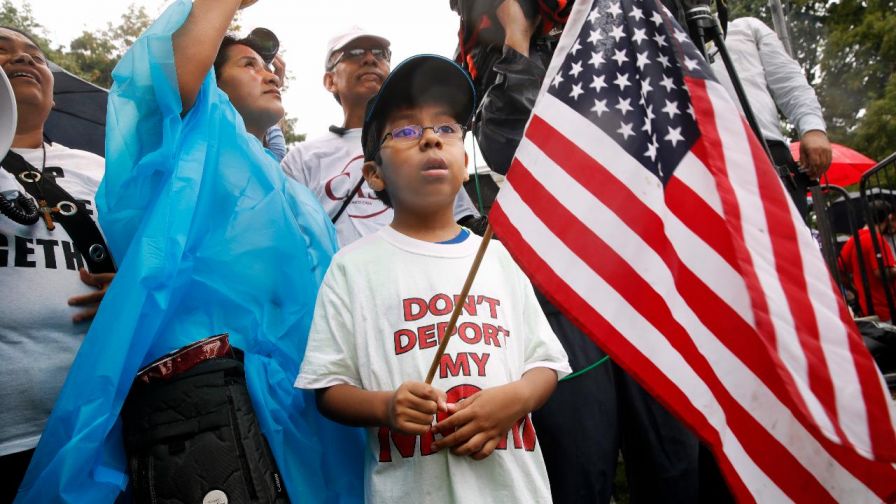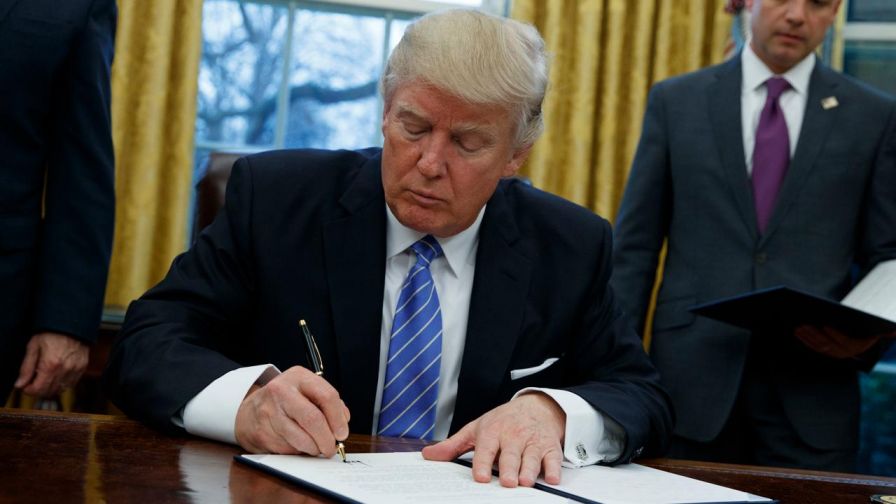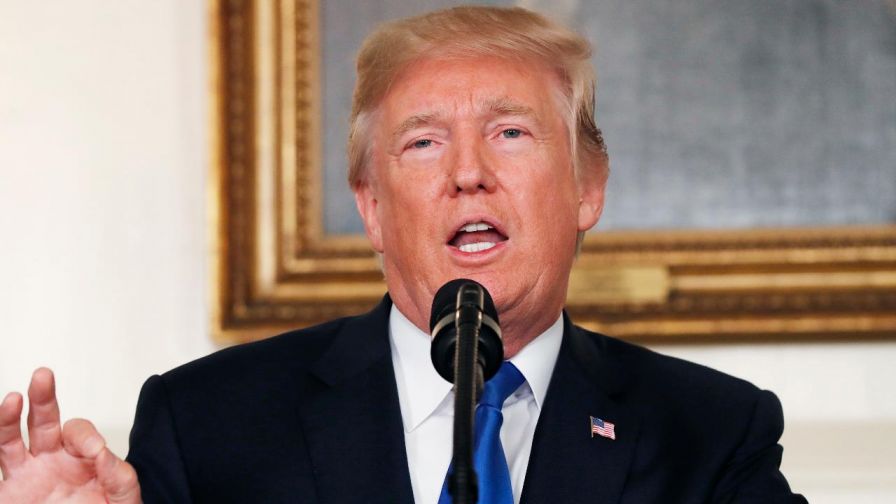How Trump is rolling back Obama's legacy
How Trump is rolling back Obama’s legacy
Obama vs. Trump: Who deserves credit for booming economy?
Both men attribute their policies to economic growth, but who’s right?
President Trump spent his first year in office moving swiftly to roll back what his Democratic predecessor did in eight.
The result: the steady unraveling of a slew of regulations and laws put in place under then-President Barack Obama, covering everything from the Internet to the environment to health care.
Read on for a 2017 overview of what Trump has done to dismantle Obama’s regulatory legacy.
Health care
As a presidential candidate, Trump regularly promised to repeal and replace the Affordable Care Act – keeping in line with other Republicans. Efforts to completely overhaul the 2010 law through Congress have thus far been unsuccessful. But piece by piece, Trump has managed to dismantle some controversial Obama-era initiatives.
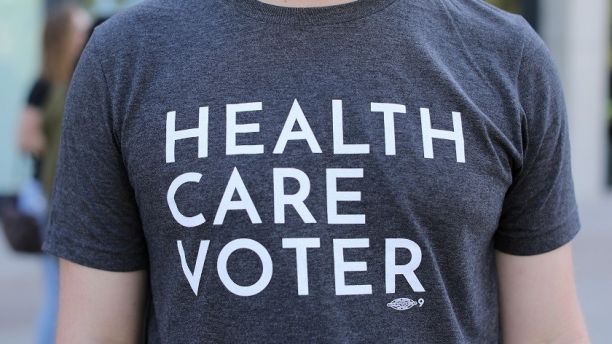
Efforts to completely overhaul the Affordable Care Act have so far been unsuccessful, but President Trump and Republicans have scaled the health care law back little by little.
(Reuters/Mike Blake)
- Individual mandate: Trump and Republicans used the sweeping tax reform bill passed just before Christmas to repeal a major portion of ObamaCare. The tax legislation eliminates in 2019 the penalty fee levied on Americans who do not purchase health care.
- Contraceptive mandate: The Trump administration announced in October that it would roll back an ObamaCare mandate that required employers to provide health insurance that included certain contraceptives, such as birth control, Plan B, intrauterine devices and sterilization procedures. The White House’s decision granted further protections to nonprofit groups, higher education institutions and non-publicly traded companies that had objections to the mandate.
- Cost-sharing reduction payments: Trump also announced in October the end to certain health care cost-sharing subsidy payments to insurers. These payments were special subsidies paid by the federal government that, in part, alleviated copays and deductibles for people with lower incomes who purchased insurance through the marketplace.
- Insurance alternatives: Through an executive order, Trump paved the way to provide “alternatives” to health insurance by instructing the Department of Labor to expand access to “association health plans.” The order allows for some consumers to purchase insurance across state lines.
Immigration
One of Trump’s biggest issues, including when he was a presidential candidate, is immigration and border security. His 2017 policy changes reflect that.
- DACA: The Trump administration announced in September that it was phasing out the Deferred Action for Childhood Arrivals (DACA) program, giving Congress only a few months to come up with – and pass – immigration reform legislation. White House officials and lawmakers are working on a deal that is expected to be revealed in January.
- Sanctuary cities crackdown: The Trump administration has vowed to crack down on “sanctuary cities” – places that limit how much local law enforcement officers cooperate with federal immigration authorities. Trump signed an executive order in January that, in part, would strip federal grant money to these cities. So far, a federal judge has blocked the withholding of funds from sanctuary cities.
Environment
The rollback of environmental regulations is meant to foster more development and punt certain land decisions back to states, the Trump administration has said.
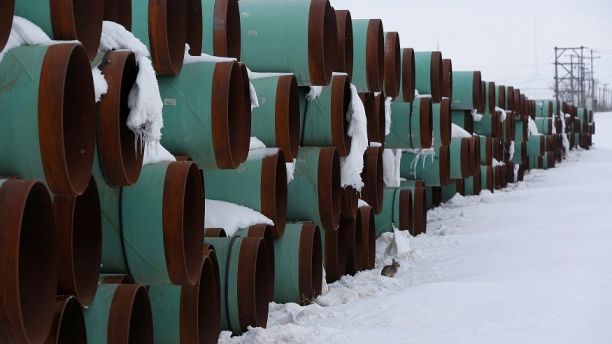
A depot used to store pipes for Transcanada Corp’s planned Keystone XL oil pipeline is seen in Gascoyne, North Dakota.
(Reuters/Terray Sylvester)
- Clean Power Plan: The Trump administration is moving toward replacing the Obama-era Clean Power Plan. EPA Administrator Scott Pruitt announced in October the administration’s intention to roll back the plan in an effort to ease regulations on coal-fired power plants. According to the EPA, the move will foster new developments of energy resources in the U.S. and reduce regulations that have curbed this kind of development.
- Paris Climate Accord: In August, the Trump administration formally told the United Nations that the U.S. plans to pull out of the 2015 Paris Climate Agreement – although that did not start the official withdrawal proceedings. The State Department said that it cannot begin to officially withdraw from the agreement until November 2019.
- Pipelines: At the beginning of his presidency, Trump signed executive orders that revived the controversial Keystone XL and Dakota Access pipelines.
- Cutbacks to federal lands: Trump in December signed executive orders that scaled back two of Utah’s national monuments – Bears Ears and the Grand Staircase-Escalante. The move was heralded by the Trump administration as a nod to states’ rights, though environmentalists criticized the decision.
Trade
When it comes to trade deals, Trump promised to “put America first.”
- Trans-Pacific Partnership: Immediately after taking office, Trump signed an executive order to withdraw the U.S. from the Trans-Pacific Partnership trade deal. Trade ministers announced in November an agreement on pushing ahead with the free-trade deal, according to the Associated Press.
Education
Betsy DeVos might be Trump’s most controversial Cabinet secretary, and she’s hit the ground running in her position.
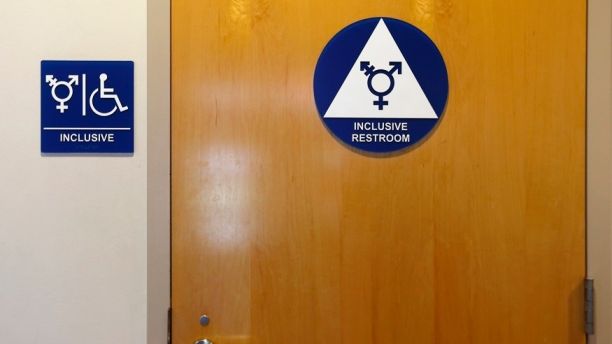
A gender-neutral bathroom is seen at the University of California, Irvine in Irvine, California. The Trump administration revoked federal guidelines that allowed public school students to use restrooms and other facilities that corresponded with their gender identity, not necessarily the sex they were assigned at birth.
(Reuters/Lucy Nicholson)
- Campus sexual assault guidelines: DeVos rescinded in September the Obama-era guidelines for colleges on how to deal with campus sexual assault investigations. In its place are temporary guidelines that she said will “treat all students fairly.” DeVos and other Republicans had been critical of the Obama administration’s approach to the campus sexual assault epidemic as they said the system denied the due process rights of those accused.
- Transgender bathroom guidelines: The Trump administration revoked federal guidelines that allowed public school students to use restrooms and other facilities that corresponded with their gender identity. The Obama-era guidelines were rescinded in February.
Net neutrality
The Federal Communications Commission voted along party lines to dismantle Obama-era Internet regulations in December. Led by Ajit Pai, the Trump-appointed FCC chair, the commission moved to repeal net neutrality regulations imposed on Internet service providers (ISPs) that prevented them from favoring their own services or certain customers over those of their competitors.
Critics argued that repealing these regulations could mean consumers would start paying more for Internet services as ISPs could begin to “bundle” services – such as certain websites or applications – and charge more based on what a person wants access to. But proponents pointed out that ISPs will still have to adhere to many other regulations and argued that this move will foster more competition that will ultimately drive down prices.
Foreign policy
When it comes to foreign policy, Trump’s opinions on other nations and leaders aren’t secret. Just take a look at his Twitter account to see how he feels about North Korea’s Kim Jong Un any given week. But he’s moved to enact key policy changes as well.
- Iran Deal: Trump announced in October that he planned to decertify the controversial Iran nuclear deal, leaving the future of the agreement up to Congress. The decertification does not mean that the U.S. has automatically pulled out of the agreement, but Trump did leave the door open to that possibility in the future.
- Cuba travel restrictions: The Trump administration partially curtailed the newfound freedom Americans had in traveling to Cuba. Obama restored diplomatic relations with the Caribbean country in 2015, but the Trump administration rolled back what businesses Americans can visit in the country.
Criminal justice and police
While running for president, Trump promised to be a “law and order” president.
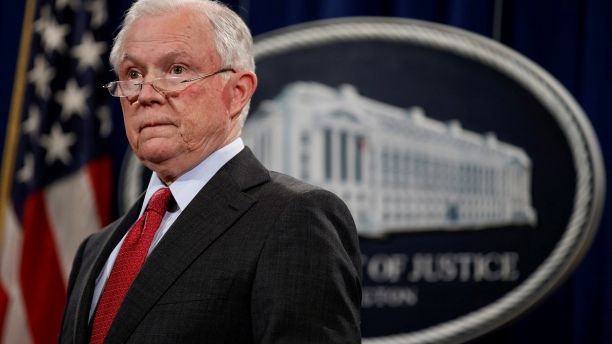
Attorney Gen. Jeff Sessions angered civil rights activists when he overturned an Obama-era directive that encouraged prosecutors to avoid charging certain drug offenders in a way that would have them face long, mandatory sentences.
(Reuters/Joshua Roberts)
- Criminal charging policy: Attorney General Jeff Sessions overturned a directive from the previous administration that encouraged prosecutors to avoid charging certain drug offenders in a way that would leave them facing long, mandatory minimum sentences. Sessions revoked the directive in May and instructed his prosecutors to “charge and pursue the most serious, readily provable offense.” The move angered civil rights groups.
- Military equipment for police: In August, the Trump administration revived a federal program curtailed by Obama that allows for local police departments to receive surplus military equipment. Critics have long decried the “militarization” of police in America; Obama largely ended the program following concerns that armored vehicles and other military surplus gear could contribute to tensions between police and civilians.














